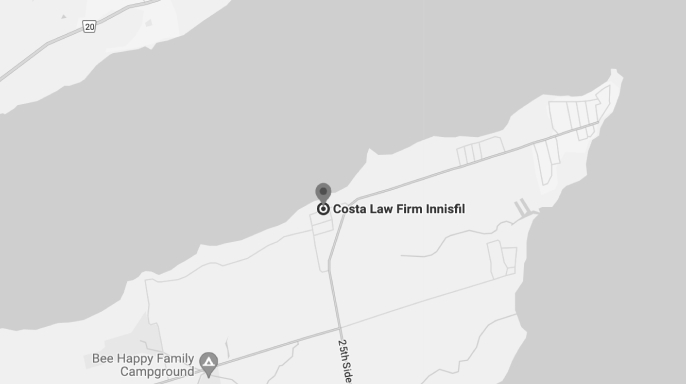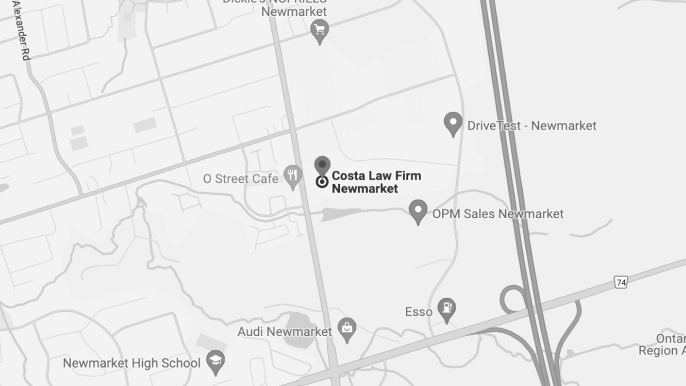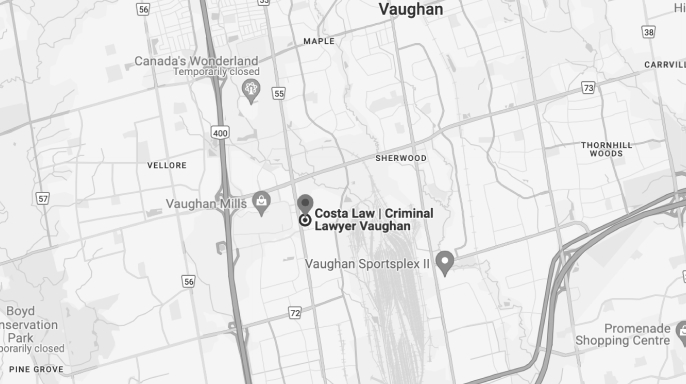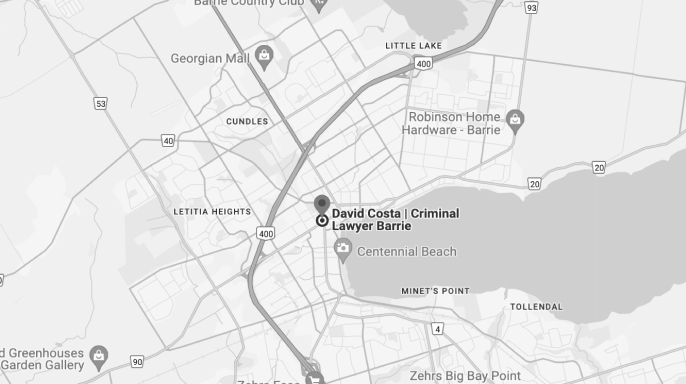Can You Carry Self Defence Weapons in Canada?
Every Canadian has a right to personal safety and to defend oneself against a probable threat. However, in Canada, you cannot carry a weapon for the purpose of self defence. While self defence weapons are common in the United States, if you make a self defence claim in Canada and are found to be carrying a weapon specifically for this purpose, it’s not legal.
In this article, we explore the topic of can you legally carry self defence weapons in Canada and the consequences involved.
What Is Self-Defence in Canada?
Under Canadian law, self defence is the right to use defensive actions that are reasonable and proportional to the circumstances. An injury to an intruder or lethal force is only justified when there is a perceived threat of severe bodily harm or loss of life. In such circumstances, defensive actions that exceed what is proportional to the threat crosses over from self defence into a criminal act.
Legal Framework of Self-Defence in Canada
As it pertains to self defence cases in Canada, they are guided under Section 34 of the Canadian Criminal Code, stating a person’s right to carry out reasonable action to protect themselves or others without being guilty of a criminal offence.
To establish self defence, the following must be true:
- A force or threat of force was being used against the person.
- The person acted for the purposes of defending themselves or others from that force.
- The actions taken were reasonable in the circumstances.
Types of Self-Defence Tools
There are many types of self defence weapons, many of which can cause serious harm when used improperly. This is predominantly why, under the Criminal Code of Canada, you are not allowed to carry any tool for the purpose of self defence. Intent matters. Where there is a grey area, however, is that you are permitted to carry a tool for the purpose of something else. If you happen to get into a situation where you use one of these tools to protect your personal safety, you are within the confines of the law to do so.
Some of the most common self defence weapons in Canada include:
- Pepper spray is illegal for use against humans, however, dog spray is made for use against dogs and wildlife. It comes in a small canister you place on a keychain or bag.
- Personal safety alarms emit a loud noise meant to deter attackers and attract attention.
- A security umbrella is an umbrella built with a heavy-duty frame and a steel tip. It can deliver a strong self defence strike.
- Self defence keychains are small and portable. Self defence keychains are, however, a prohibited weapon under Canadian law if they are not primary intended for the purpose of holding keys.
- A tactical flashlight can be used to shine in an attacker’s eyes and blind or disorient them.
- Safety whistles are an effective protective self defence tool that are perfectly legal to carry and work to attract attention when you need it most.
If you are found to be carrying a weapon, i.e baseball bats, pocket knives, bear spray or pepper spray for the primary purpose of self defence, this can result in weapon charges and a potential multi-year prison sentence.
Self-Defence Scenarios
Self defence scenarios run the gamut, from attempted assault to attempted rape or sexual abuse, robbery, kidnapping or abduction, trespassing, and threatening behaviour.
A home intruder encounter is a self-defence situation. Another is when there is a disagreement at a bar or club that turns physical. A third common example is if someone approaches your car to try and steal it, potentially with a knife, gun, or similar weapon. Each of these scenarios can turn into self defence situations.
In some legal cases, an assumption is made about someone being a threat but it turns out it is a mistake. In such a scenario, if you follow through with what you consider self defence, a judge or jury may not see it the same. In fact, what may be self defence to one person may legally be closer to an assault in the eyes of the justice system.
A self defence scenario is evaluated based on a number of variables. These include the nature of the force or threat, the extent to which force was imminent, if there were other means to respond, whether any stakeholder in the incident used or threatened to use a weapon, and the size, age, gender, and physical capabilities of those involved.
Firearms and Self-Defence in Canada
Intent matters, however, firearms are prohibited. Even when used for protection, under Canadian law, there is no such thing as a firearm for self defence.
If an intruder enters your home or engages you in a confrontation and you respond by killing them with a firearm, this could equate to a second-degree murder charge in Canada. Even if the death is accidental and even if the firearm use was done in error.
If you are able to demonstrate the criteria of self defence is met partially or in full, self defence may apply to a charge of assault or murder. However, the accused is still guilty, in clear terms, of prohibited use of a firearm.
Rarely is lethal force seen as reasonable force in Canada, whether this is a firearm or any type of weapon similar to it. For a person who is overly aggressive and causes an attacker’s death, this then reframes the act of self defence as an act of aggression.
A weapon such as a knife – considered less lethal than a firearm – is still considered a deadly force weapon. If used in a self defence scenario, you must have legal justification and with firearms, there are none.
Police and Legal Procedures
Most people are charged in a self defence situation, either due to a police procedure or they may be accused of a crime.
If this happens, under Section 7 of the Canadian Charter of Rights and Freedoms, you have the right to remain silent. While it is recommended to provide police with basic information, i.e. name and address, you should not give a police statement or say anything else.
Consult with a self defence lawyer before proceeding further with any statement, to minimize the risk of giving incriminating evidence or stating details that could be misinterpreted to mean something you did not intend.
In most self defence cases, it is a lone individual. There are rarely witnesses, the context and circumstances of an incident can sometimes be debated, and the evidence on both sides can be limited. An experienced legal team or self defence lawyer is a must to ensuring your rights are respected and that you put up the best defence possible.
You must provide evidence and argue in court that your actions were self defence. A criminal has rights, just like you. A person who has committed a criminal act against you does not give you the legal right to use unrestrained force against them, such as using pepper spray or bear spray unnecessarily. Furthermore, if the action taken is seen as seeking vengeance, punishment, or to vindicate honour, this crosses the line over into assault rather than self defence.
Best Practices for Self-Defence
It is imperative to remember that it is not legal in Canada to carry any weapon for the purpose of self defence. If you are buying and accumulating weapons for the purpose of using them in situations where they serve a defensive purpose, this is not legal in Canada.
It is also key to remember that self defence is about diffusing a threat and not about inflicting fatal injuries. If there is excessive force, the response is overly aggressive, if there is gun usage, or a death happened, this is not defensive action.
Unfortunately, one does not always have the ability to execute the perfect self defense response but ideally, one is with no possession of a firearm or self defence knife, no pepper spray, and no weapon.
In some cases, the best thing to do is to call the police and wait, try to diffuse a situation and avoid a physical confrontation until the police have arrived, or allow what is happening to occur, such as letting a criminal steal money from your wallet rather than engaging them in a physical fight.
Any time there is a physical altercation, use restrained force after you have subdued the threat.
Conclusion
You have the right to defend oneself against a threat. In a self defence case, it is not uncommon for a person to have used a weapon if one was available. Depending on the circumstances of the encounter, however, things can become complicated. Unreasonable force can lead to a charge of aggravated assault. If what you deemed a probable threat turns out to not be, that’s an issue. If you were acting unlawfully, broke laws, put others in danger, used an illegal weapon, or injured your attacker beyond what was reasonable, this can make a self defence claim extremely complex.
If you are being charged with a crime and are pleading self defence, especially if there was a weapon involved, contact a criminal defence lawyer without delay.
CAUTIONARY WARNING: these writings are intended by Costa Law Firm Professional Corporation to serve strictly for promotional purposes and are not to be considered to be legal advice to the reader’s particular situation – ALWAYS actively consult directly and exchange particular information with a licensed lawyer or paralegal as appropriate in the circumstances.
David Costa
Dir.(416)788-6329





